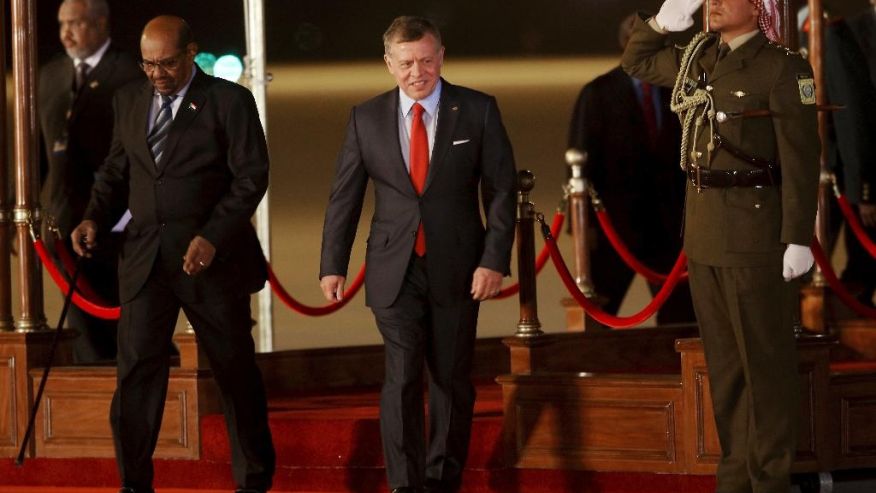SUDAN INSIDER |
This news summary is part of our Sudan Insider, a monthly newsletter providing news and analysis on Sudan’s biggest stories.
Subscribe here to receive the Sudan Insider in your inbox.
…………………………………………………………………………………………………………..
President Bashir visits Jordan for Arab Summit despite warrant
President Omar al-Bashir arrived in Jordan on March 28 for the annual meeting of Arab leaders, defying the travel ban derived from his International Criminal Court arrest warrant. In 2009, the International Criminal Court (ICC) indicted Bashir on charges of genocide, crimes against humanity, and war crimes in Darfur.
In January, King Abdullah II of Jordan invited Sudan’s president to attend the summit with 16 other Arab leaders, UN Secretary General Antonio Guterres and delegations from Britain, China, France, Russia and the United States. UN Secretary General’s Deputy Spokesman Farhan Haq called on Jordanian authorities to arrest Bashir and hand him over to the ICC. Sudan’s foreign minister Ibrahim Ghandour rejected the statement claiming the UN has “no mandate to talk about the ICC”.
Jordan is a party to the Rome Statute of the ICC and hypothetically has an obligation to enforce an ICC arrest warrant for Bashir. Formerly a staunch ICC supporter, human rights groups have widely condemned Jordan’s reversed stance allowing Bashir entry.
Jordan has supported the Sudanese government to the detriment of its citizens in the past. In late 2015, Jordan rounded up and deported 800 Sudanese, largely citizens who escaped the conflict in Darfur, from its territory to Sudan. Some Sudanese were even arrested in front of the UN Refugee Agency (UNHCR) offices where they had organized a peaceful sit-in for an entire month, calling on the agency to desist from preferential treatment of certain refugee communities over others.
Bashir routinely ignores the ICC travel ban, having traveled to over 100 countries since 2009 according to the international court, including several countries signatory to the Rome Statue. In August, Bashir attended the inauguration ceremony for Chadian President Idris Deby, a country signatory to the ICC. Bashir made similar trips to Uganda and Djibouti last year – with both countries being ICC signatories.
What it means…
Bashir’s ongoing defiance of the ICC arrest warrant has garnered him domestic and international praise for resisting alleged western hegemony. The African Union, in particular, has protected Bashir from arrest since the warrant’s inception and accuses the court of selective targeting of African countries. This argument ignores the fact that local African prosecutors initiated all the cases except for Sudan and Libya.
In 2009, the AU signed a declaration expressing concern over Bashir’s indictment, derailing the Darfur peace process and another in 2010 stating the AU would not enforce the warrant against Bashir. By 2015, the AU called on the UN Security Council to suspend proceedings against the Sudanese president, urging them to withdraw the ICC referral.
Sudan actively lobbies against the ICC, supporting countries such as The Gambia, Burundi and Russia in their individual decisions to withdraw from the international court last year. During the last Arab Summit, the Sudanese government called on the Arab League to take practical steps to support Sudan’s stance against the ICC. In July, the state-owned Addis Ababa University in Ethiopia presented Bashir with the “Africa Dignity Award” for resisting “western hegemony” and “upholding African institutions,”according to news reports.
Despite President Bashir’s ICC arrest warrant and his government’s critical position toward the international court, Khartoum is enjoying improved foreign relations across the globe. In January, the US lifted 19-year economic sanctions that in turn encouraged Britain and other European countries to seek further trade concessions. Improved relations with oil-rich Saudi Arabia may ensure further immunity from international censor in the months ahead despite Khartoum’s abysmal human rights record.





